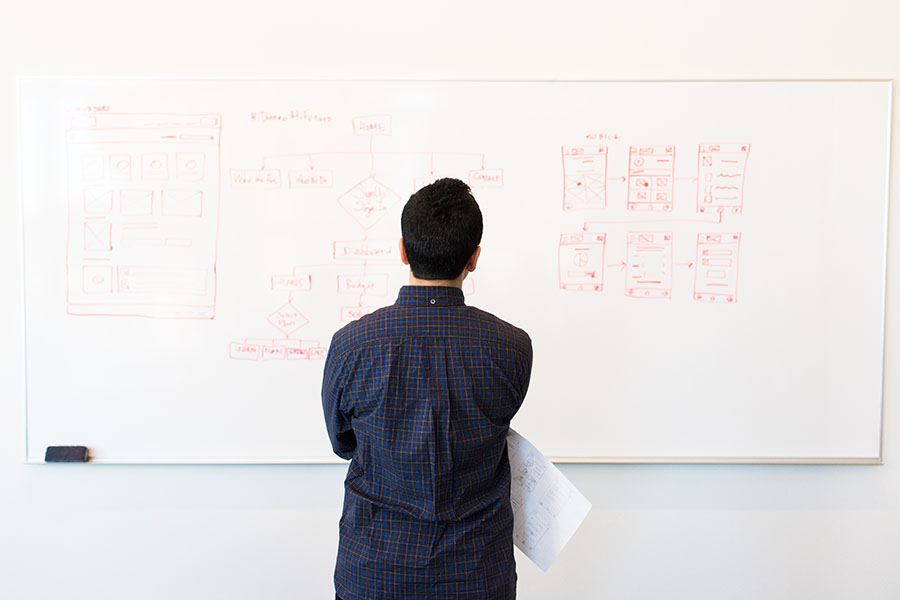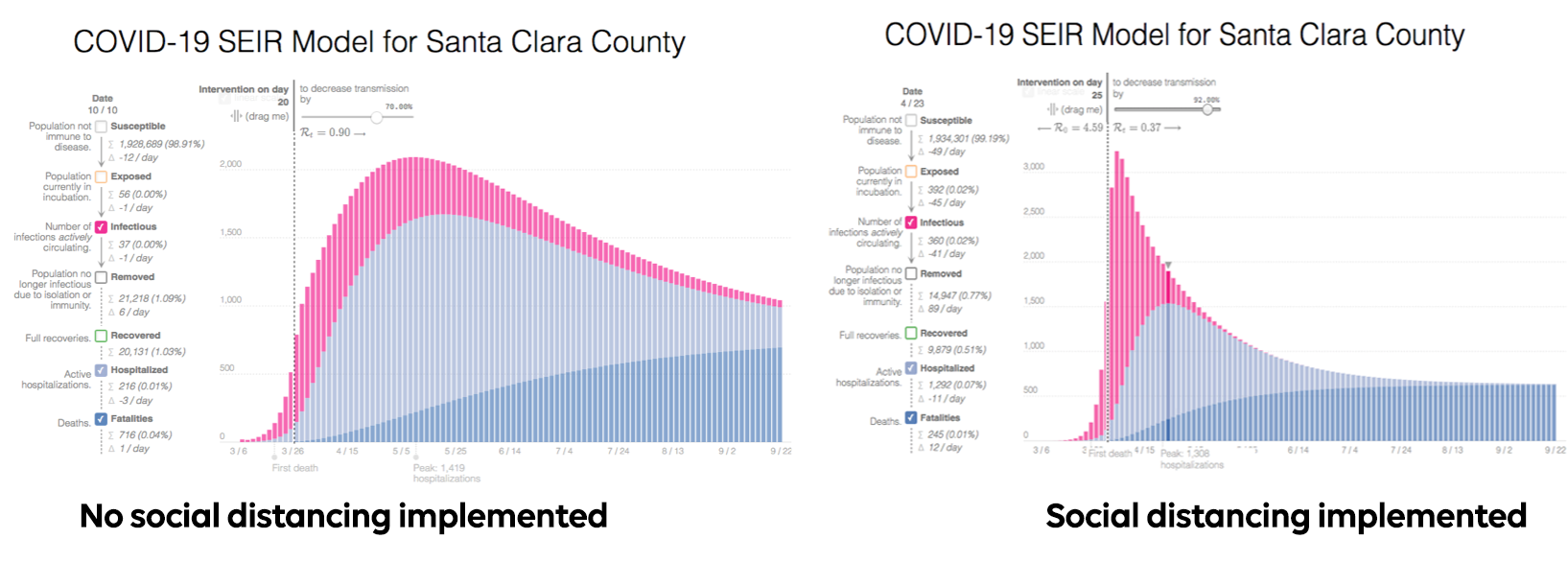
Predicting a Pandemic: Using AI Models to Understand COVID-19
By Elizabeth Donaldson
Students at Carnegie Mellon University and across the world have experienced a uniquely challenging spring semester. Campuses have temporarily closed to prevent the spread of COVID-19 and protect students, faculty, staff, and local communities. At the Integrated Innovation Institute, students and faculty have transitioned to online learning and have worked remotely throughout the semester to tackle large scale problems.
In Professor Catherine Fang's "AI for Product Managers" course, Master of Science in Software Management students have spent the last six weeks working remotely, applying regional healthcare data to AI models. Fang’s students sought to better understand the widespread effects of the coronavirus pandemic and to help forecast its movement in the Bay Area.
"The model training with COVID-19 data is truly focusing on solving real-world, pressing issues and that would be the primary focus for product managers," says Fang.
Demonstrations of AI prediction modeling
Students worked in small teams to approach data from the perspective of a product manager. The teams focused on applying ARIMA, Holy Linear Algo, and SEIR models to COVID-19 datasets from San Francisco County, Santa Clara County and the Bay Area. Using these models, teams were able to quantitatively demonstrate the effectiveness of social distancing and shelter-in-place in local communities and forecast how such implementations will continue to reduce the virus's spread.

Samples of the SEIR model demonstrating social distancing effectiveness
"I wasn’t the most technical person in the class," says Ida Wang (MSTV '20), sharing that project was a challenge for her small team. Wang explained that Professor Fang supported her team throughout the course and that she completed her project learning a lot about AI in the context of product management.
In addition to applying public health data to AI algorithms, the teams also built user interfaces to illustrate projections. Visitors to the site can adjust filters to review forecasts and explore simulations.
"We hope this platform will help users know more about the pandemic in our neighborhood," concludes Meiwein Li (MSSM '20) and Moustafa Aly (MSSM '20).
